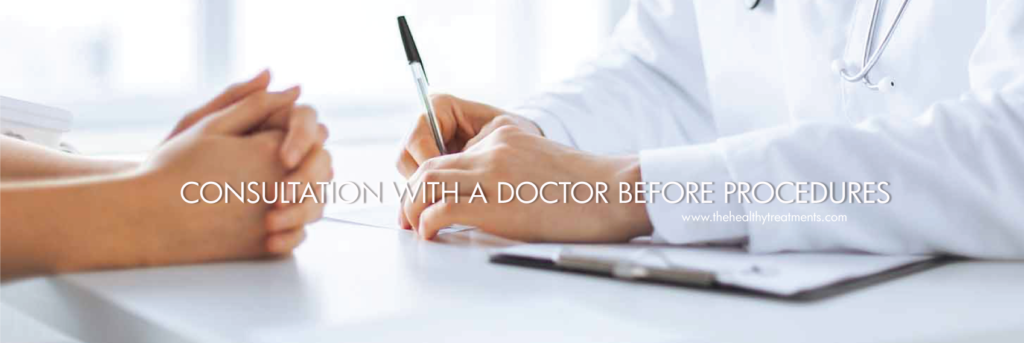Porcelain Veneers Cost – Is It Worth It? Choose Board...
Leer Más

Table of Contents:
Introduction
Introduction – Comprehensive Guide to Preparing for Plastic Surgery: A Surgeon’s Perspective:
Welcome to this comprehensive guide on preparing for plastic surgery, offered from the perspective of a board-certified plastic surgeon. Choosing to undergo plastic surgery is a significant decision, and thorough research and preparation are crucial for achieving your desired results safely and effectively.

Before embarking on your plastic surgery journey, it’s essential to identify your specific cosmetic goals. Understand what you want to achieve through surgery, whether it’s facial rejuvenation, body contouring, or breast enhancement.
Ensure your surgeon is board-certified by the American Board of Plastic Surgery or an equivalent certifying body in your region. Certification ensures that your surgeon meets rigorous standards of competence and ethical practice.
Research your surgeon’s experience and track record with the specific procedure you’re considering. Request before-and-after photos of previous patients who have undergone similar surgeries.
Learn about your surgeon’s educational background, training, and specialization in plastic surgery. A well-rounded education and training are crucial for a successful outcome.

Schedule consultations with multiple plastic surgeons to discuss your goals, expectations, and the surgical plan. Use this opportunity to ask questions and gain insights into the procedure.
Consultations with plastic surgeons play a pivotal role in the journey towards successful plastic surgery in Colombia. These consultations are not only an opportunity for you to discuss your goals and expectations but also a crucial phase for gaining valuable insights and building trust with your chosen surgeon. Here’s why consultations are so important:
In-Depth Discussion: During consultations, you have the chance to engage in an in-depth discussion with your plastic surgeon about the specific procedures you’re interested in. You can express your aesthetic goals, concerns, and any questions you may have. It’s essential to communicate openly and honestly to ensure that your surgeon fully understands your desires.
Personalized Treatment Plan: Each patient is unique, and a consultation allows the surgeon to create a personalized treatment plan tailored to your individual needs. Your surgeon will assess your anatomy, skin condition, and overall health to determine the most suitable approach to achieve your desired results.
Understanding the Procedure: This is an opportunity for you to gain a comprehensive understanding of the surgical procedure, including its steps, potential risks, and expected outcomes. Your surgeon should explain the entire process, from preoperative preparations to post-operative recovery.
Building Trust: Trust is a critical component of a successful patient-surgeon relationship. Through consultations, you can evaluate your surgeon’s professionalism, expertise, and bedside manner. You should feel comfortable and confident in the surgeon’s abilities and commitment to your well-being.
Reviewing Before-and-After Photos: Surgeons often provide before-and-after photos of previous patients who have undergone similar procedures. Reviewing these images can help you visualize potential outcomes and make an informed decision.
Addressing Questions and Concerns: Don’t hesitate to ask any questions or voice concerns you may have during the consultation. This is your opportunity to seek clarity on any aspect of the surgery, such as recovery, scarring, or the surgeon’s experience.
Discussing Costs and Financing: Consultations also offer a platform to discuss the financial aspects of the surgery. Your surgeon should provide a transparent breakdown of costs, including surgeon’s fees, anesthesia fees, and facility fees. You can also inquire about financing options or payment plans.
It is essential to confirm that the surgical facility where your procedure will take place holds proper accreditation. Accreditation is a vital indicator of a safe and well-equipped environment for any surgical procedure, not just in Colombia but globally. Regardless of the location, patients should ensure that the facility is accredited by recognized organizations such as AAAASF, AAAHC, or their local equivalent. Accreditation signifies that the facility adheres to stringent standards of quality, safety, and cleanliness, providing you with added assurance about the overall surgical experience.
Discuss the type of anesthesia that will be used during your procedure and the qualifications of the anesthesia provider. Anesthesia safety is paramount.
Educate yourself about the potential risks, complications, and side effects associated with your chosen surgery. Knowing what to expect can help you make an informed decision.
Learn about the expected recovery timeline, post-operative care, and any physical activity limitations. Adequate preparation ensures a smoother recovery.
Obtain a detailed cost estimate, including surgeon’s fees, anesthesia costs, facility fees, and follow-up visits. Explore financing options and payment plans if needed.
Read reviews and testimonials from previous patients to gain insights into their experiences with the surgeon and the facility. Patient feedback can provide valuable perspectives.
Check for any malpractice claims or disciplinary actions against your chosen surgeon. A clean professional record is a reassuring sign.
Consider seeking a second opinion from another qualified plastic surgeon to validate the proposed treatment plan and ensure it aligns with your goals.
Understand how much time you’ll need to take off work or other obligations during the recovery period. Adequate rest and self-care are essential for a smooth recovery.
Set realistic expectations for the results of your surgery. Plastic surgery can enhance your appearance, but perfection may not be achievable.
Ensure that your surgeon provides thorough post-operative follow-up care and addresses any concerns or complications promptly.
Discuss and implement any necessary lifestyle changes, such as quitting smoking or managing your weight, before your surgery to optimize your results and safety.
Follow your surgeon’s preoperative instructions diligently, including medication adjustments, dietary restrictions, and abstaining from substances like nicotine.
Ultimately, choose a surgeon and facility that make you feel comfortable, confident, and well-informed about your decision. Trust your instincts throughout the process.
Review and sign all consent forms, ensuring you fully understand the procedure, its risks, and the post-operative care plan.
By following these steps and conducting thorough research, you can embark on your plastic surgery journey with confidence, knowing you’ve made informed decisions to achieve the best possible outcomes.
we encourage you to do your own work and contact TheHealthyTreatments. Feel free to contact us without delay to initiate the process and find board certified Plastic Surgeons.
Comprehensive Guide to Preparing for Plastic Surgery: A Surgeon’s Perspective
Porcelain Veneers Cost – Is It Worth It? Choose Board...
Leer MásDental Bridges Cost in USA vs Colombia: Which Country Offers...
Leer MásWhy are people going to Colombia for Dental Treatments? Find...
Leer MásTheHealthyTreatments Unveils Premium Veneers in Colombia 2024 Are you looking...
Leer Más